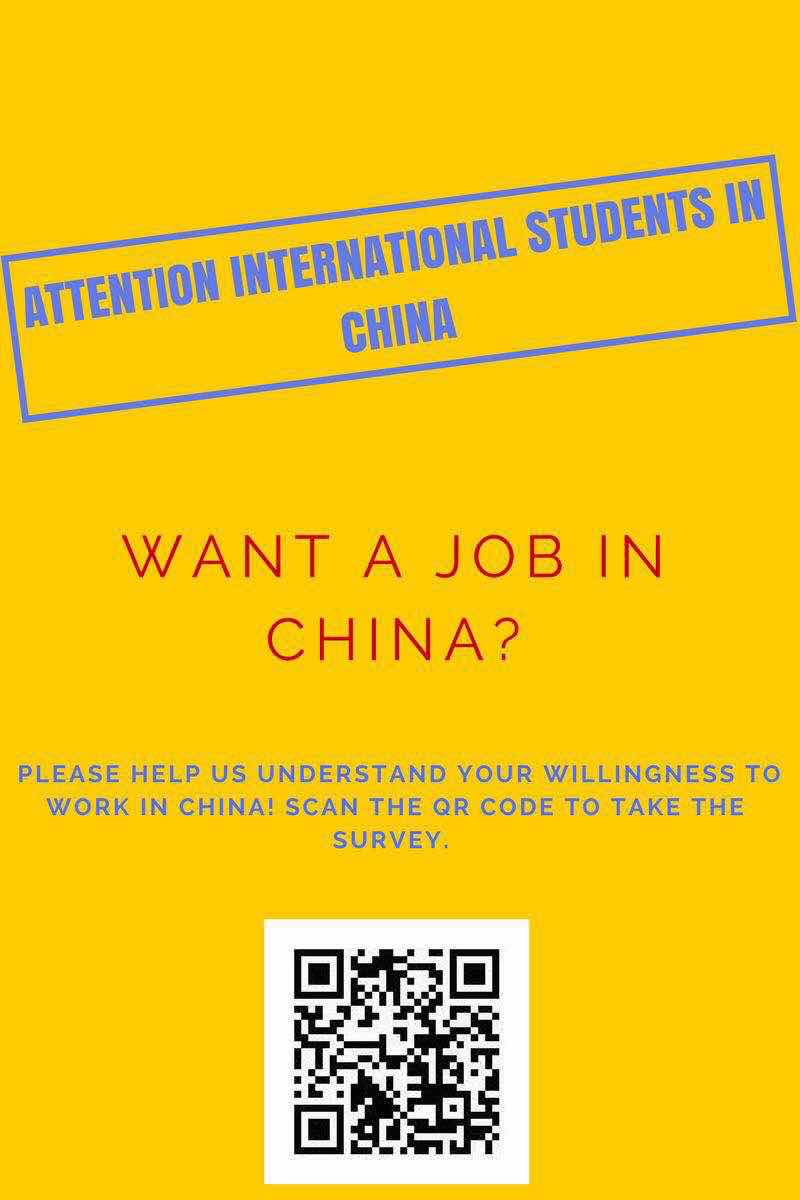Studying and working in China present challenges
chinadaily.com.cn | Updated: 2018-04-28 16:14
Shelby Smith, an intern from US working at the Center for China and Globalization (CCG) - a Beijing-based Chinese think tank, has discovered working in China is not as easy as she expected when she announced her plan to her family and friends.
"I wanted to learn more about Sino-US relations from the perspective of China and contrast the difference within business, politics, media and technology," said Shelby Smith, 20, who came to Beijing in January from New Jersey. She is as an exchange student at Tsinghua University for past five months.
However, she has found job hunting difficult due to the language barrier and a different work culture. "Efforts to adapt to the differences in language, diet, transportation, and information acquisition are also usual problems for international students in finding jobs in China," Smith said.
The language barrier meant Smith had to rely on people who speak English, and their networks, to hear about employment opportunities. This wasted her time as the information was very limited.
Unlike Shelby Smith, Vicki Cann, a PhD candidate in communication studies, from Jamaica, uses WeChat - China's most popular instant messaging app - to sift out suitable job information. And she’s also learned that making the acquaintance of the company's staff members can help international students when they apply for work.
Adapting to a different work culture is another problem for Shelby Smith. Communication at work in the United States is done through e-mail, but most companies in China use WeChat. "Everything is difficult because it is such a different and traditional culture," she said.
Vicki Cann shared Smith's experiences but has a new problem. For her, the difficulty in applying for a job in China is obtaining the correct visa. The visa policy is a crucial issue for foreign students looking for jobs in China.
"The visa process requires a significant amount of documentation and takes a long time. And the policies and visa procedures are top issues for international students along with language barriers," said Vicki Cann.
Based on her interest, Cann wants work related to media and teaching, and hopes to use her practical knowledge to better prepare university students for the real world.
"I am fully aware that China is in a period of rapid development and opening up, and being able to become a participant in this development process is one of the important reasons that prompted me to work here," said Vicki Cann.
During her stay in China, she also tried a variety of jobs in Beijing, including working as editor and university assistant, but none of them were truly formal jobs. "They can be viewed as practical training, while completing my degree," said Vicki Cann.
Based on the relevant development strategies proposed by the state, the talent issue is one of important factors that contribute to national development. According to CCG's recent report, the overall level of China's regional international talent competitiveness is unsatisfactory, and even Shanghai, which ranks first, score low.
Wang Huiyao, president of CCG, said that talent is the first resource for a country. "Attracting talents is just the first step, retaining them is the key. To this end, it is necessary not only to lower the barrier for attracting talents, formulate talent introduction plans, and establish a development platform in terms of policies, but also to provide convenience for them and their family," said Professor Wang.
Liu Jinlan, the deputy dean of International Education School at University of International Business and Economics (UIBE), said relying on the school platform to obtain employment information and following the direction of national policy to determine the direction of training will help solve the problem for foreign students in China.
By setting up an internship and employment guidance center for international students, the school has integrated the management of information channels, curriculum setting, and employment guidance to ensure that foreign students pass the language barrier and know the relevant policy, she said.
"The organization of on-campus international student recruitment has also helped overseas students both inside and outside the school," said Liu Jinlan.
Shelby Smith agrees with the suggestion to provide convenience for international students and their family. "It was very difficult for my dad to visit me due to visa regulations. There’s also not enough information on how to start a life in China as an international student."
To help foreign students, the school has advisers but they are purely academic. International students have to search the city by themselves and have to pray that someone would understand English at any restaurant, bus stop or place so they could get what they needed. That is one of the most thorny problem for Shelby Smith.
"Unless you are affiliated with a company that organizes everything for you, it can be extremely difficult to learn how to adjust to life here," she added.
Vicki Cann shares the similar idea with Shelby Smith on the visa policy. She thinks that some of the current regulations should be waived off for foreign students graduating from Chinese universities, especially those graduating with a Masters or a PhD. “It can be very difficult to get a work visa even if you are quite qualified,” Vicki Cann said.
To assist foreign students overcome the language barrier, some universities now provide international students a one year intensive language program before they begin their major. "I think this also should be offered to Masters and PhD students even if they are doing their coursework in English," said Vicki Cann.
When talking about their future plan, Shelby Smith said she plans to return to her country after completing the exchange project. Vicki Cann will continue to complete her studies and try to find a job in China.
Gu Mingfei has contributed to this report.
If you are a foreign student now in China, please scan the QR code below to express your opinion on this topic.

























